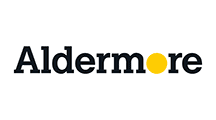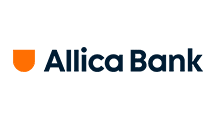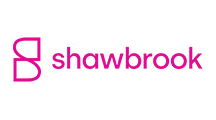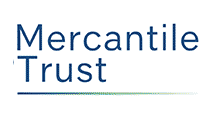This information should not be interpreted as financial, tax or legal advice. Mortgage and loan rates are subject to change.
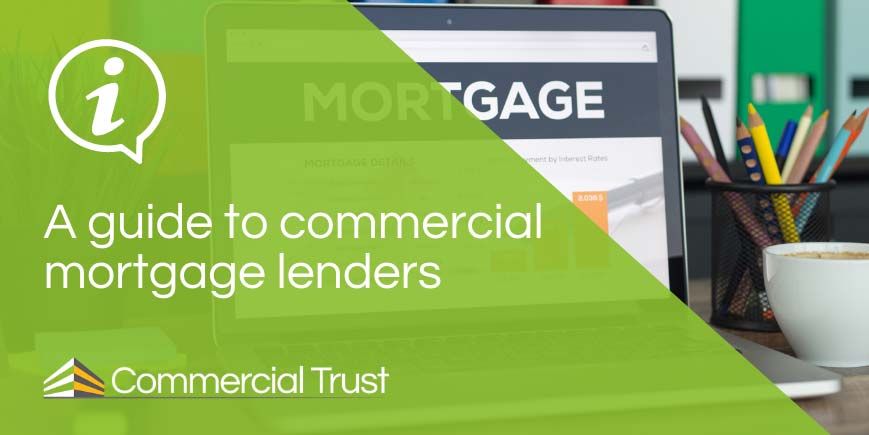
Categories: guides | guides commercial mortgage guides
guidesIf you are a landlord or property investor looking to buy a business premises to let out, or a business owner looking to expand your business operations with additional property, you might need a commercial mortgage.
A commercial mortgage can be used to buy or remortgage a huge range of different types of commercial properties. In this guide, we will explore everything you need to know about commercial mortgage lenders and how to find the best deal for your business.
What is a commercial mortgage?
Before we dive into the world of commercial mortgage lenders, let's define what a commercial mortgage is.
A commercial mortgage is a type of loan secured against a property used for business purposes. A semi-commercial mortgage is a building that combines residential and business use, for example a shop with a flat above. Read our guide to semi-commercial mortgages for more information.
It can be easy to confuse investing through a limited company in a residential rental and think you need a commercial mortgage. This is not the case (nor do you need a commercial mortgage for holiday lets). The “commercial” in “commercial mortgage” refers to the property type you are borrowing against (i.e. it is in part or in whole a business premises).
Unlike residential mortgages, commercial mortgages are not regulated by the Financial Conduct Authority (FCA), because they are used for business purposes. This means that lenders have more flexibility in setting their terms and conditions (it also means borrowers are not protected by FCA regulations).
Commercial mortgage lenders
There are many commercial mortgage lenders in the market, ranging from high-street banks to specialist lenders. Here are some of the most common types of commercial mortgage lenders:
High-street banks
These are the large, established retail banks with a nationwide presence.
Typical borrower: Businesses with strong financials, good credit history, and a stable trading track record.
Features:
- Competitive interest rates.
- Longer application times due to strict underwriting and internal bureaucracy.
- More conservative lending criteria – for example, they may require full trading accounts, strong affordability, and standard property types.
Application route: Some allow direct applications; others may prefer broker introductions for commercial cases.
Specialist lenders
These lenders focus specifically on property-backed lending and cater to more complex or non-standard cases.
Typical borrower: Investors or businesses with complex circumstances — e.g. adverse credit, short trading history, unusual property types, or limited company structures.
Features:
- Flexible underwriting and criteria.
- Willing to lend on a broader range of property types (e.g. semi-commercial, mixed-use, vacant properties).
- May charge higher interest rates and fees than high-street banks to reflect increased risk.
Application route: Often only available via brokers; rarely offer direct-to-consumer deals.
Challenger banks
These are newer, smaller banks set up to compete with traditional banks.
Typical borrower: Often similar to high-street borrowers but with a focus on SMEs, growing businesses, or niche sectors.
Features:
- More agile underwriting and faster turnaround than high-street banks.
- Often use technology and data more efficiently to assess applications.
- May offer competitive pricing and flexible terms, particularly for professional landlords or business operators.
Application route:Many work via intermediaries (brokers), though some also offer direct access.
The lenders we work with at Commercial Trust are representative of the UK marketplace, below is a small selection of them:
The relationship between commercial lenders and commercial mortgage brokers
Commercial mortgage brokers, like our team at Commercial Trust, are intermediaries that help businesses find the best commercial mortgage deal for their needs. They work with a panel of lenders and can help businesses navigate the complex application process. However, they typically charge a fee for their services.
How to find the best commercial mortgage lender
Realistically, given many commercial mortgage lenders only accept applications via intermediaries like brokers, the way to find the best commercial mortgage lender for you is to work with a broker.
Before you get that far though, it’s important to work out if your plans are broadly realistic. For example, it is well worth knowing what current commercial mortgage interest rates are on offer. You can use our online commercial mortgage calculator for this. Commercial rates are higher than residential or buy to let rates.
Be realistic about the amount you are going to have to put down as a deposit. You are going to need 25%-40% of the property value. If you own other property and have equity in it, you may be able to raise a deposit from this source, but you cannot buy a commercial property without putting down funds of your own.
If rates are affordable for you and you have a deposit ready, then put in an offer on your target property. Once your offer has been accepted, a broker can start the process of finding you a lender and mortgage product.
Contact the experts at Commercial Trust today
When you work with our team of commercial mortgage experts, all the work is done for you. We will do thorough research, considering your needs, checking the lender's credentials, comparing rates and terms, to find the best you commercial mortgage lender and product for your needs and circumstances.
You can call us for free, talk to an advisor via our live chat service or submit an enquiry online for an advisor call-back.

